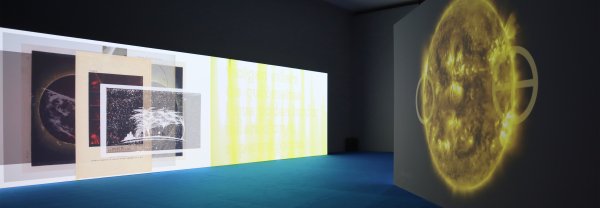John Cage
The American composer John Cage (1912–1992) defined a radical practice of “experimental” musical composition that not only changed the course of modern music and dance, but generated a new horizon for the art of the late-twentieth century. Born in Los Angeles, Cage moved to New York in the early 1940s, performed extensively in Europe throughout the 1950s, and made an international name for himself by continually questioning the conventions of music. Cage’s more than fifty-year career ushered in numerous formal, structural, temporal, and media innovations that remain cornerstones of contemporary consciousness.
The Cage's career unfolds decade by decade: from percussion music (1930s), to “prepared piano” compositions (1940s), to chance and indeterminacy (1950s), to new media (1960s onward), through to the political focus that ever more explicitly informed the works of the last decades of his life.






![An Anthology of chance operations ... / by George Brecht ... [et al.] ; La Monte Young, editor ; George Maciunas, designer](https://img.macba.cat/public/styles/large/public/imagenes/archivo/documento_archivo_A00260.jpg?itok=Or0s9xPI×tamp=1670200095)
![Enseigner et apprendre, arts vivants / par Robert Filliou et le lecteur, s'il le désire ; avec la participation de John Cage ... [et al.] ; et une post-face de Anne Moeglin-Delcroix ; traduction Juliane Régler, Christine Fondecave](https://img.macba.cat/public/styles/large/public/imagenes/archivo/documento_archivo_A00486.jpg?itok=qnV2qE2o×tamp=1675155936)
![Lehren und Lernen als Auffuehrungskuenste / von Robert Filliou und dem Leser, wenn er will ; unter Mitwerkung von John Cage ... [et al.] = Teaching and learning as performing arts / by Robert Filliou and the reader, if he wishes ; with the participat](https://img.macba.cat/public/styles/large/public/imagenes/archivo/documento_archivo_A13053.jpg?itok=Nd-7Ilsn×tamp=1596687020)
![Lehren und Lernen als Auffuehrungskuenste / von Robert Filliou und dem Leser, wenn er will ; unter Mitwerkung von John Cage ... [et al.] = Teaching and learning as performing arts / by Robert Filliou and the reader, if he wishes ; with the participat](https://img.macba.cat/public/styles/large/public/imagenes/archivo/documento_archivo_A01004.jpg?itok=1NYSv7xT×tamp=1606626441)
